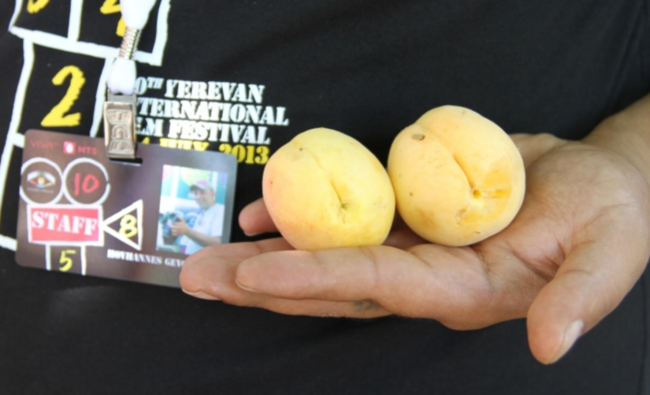
 Armenia’s Golden Apricot International Film Festival has been criticised amid reports that they ‘censored queer movies’ and other films featuring controversial topics.
Armenia’s Golden Apricot International Film Festival has been criticised amid reports that they ‘censored queer movies’ and other films featuring controversial topics.
According to queer rights group PINK Armenia, the festival was set to include, among others, two movies which discuss queer rights, but these were removed from the screening list.
Listen to me: untold stories beyond hatred, a documentary, and Apricot groves, a fiction film, were scheduled to be screened under the ‘Armenians: internal and external views’ section of the programme.
However, festival organisers cancelled the screening of all 36 films by Armenian directors that were scheduled to be screen between 9–16 July under this section.
According to PINK Armenia, the Union of Cinematographers of Armenia, which was to provide a venue for screening, demanded that the two movies be removed threatening to withdraw from the festival.
RFE/RL reported that organisers only ‘apologised for any inconveniences’.
The official reason the screenings of the whole section was cancelled was ‘the day of mourning’ of the late Ruben Gevorkyants, a former director of the Cinematographers’ Union, who passed away on 23 June.
According to PINK Armenia, the films covered not only queer topics, but also different social issues, such as the Armenian Genocide, Nagorno-Karabakh conflict, and many others.
Rights group PINK Armenia urged the festival to ‘immediately restore the screening of all films regardless of the format’.
‘Otherwise the Golden Apricot International Festival will accept that they are the ones who are legitimising censorship and changes in the festival’, their statement read.
Golden Apricot has not yet responded to the claims.
The controversy sparked outrage from civil society activists, as sexuality is a taboo topic in Armenia, where the Armenian Apostolic Church remains one of the most influential institutions.
The festival began on 9 July with a ceremony of consecration of apricots in the Church of St. Anna. According to the Caucasian Knot, a priest held a liturgy and then consecrated apricots — the symbols of the event.




 14 July 2017
14 July 2017


